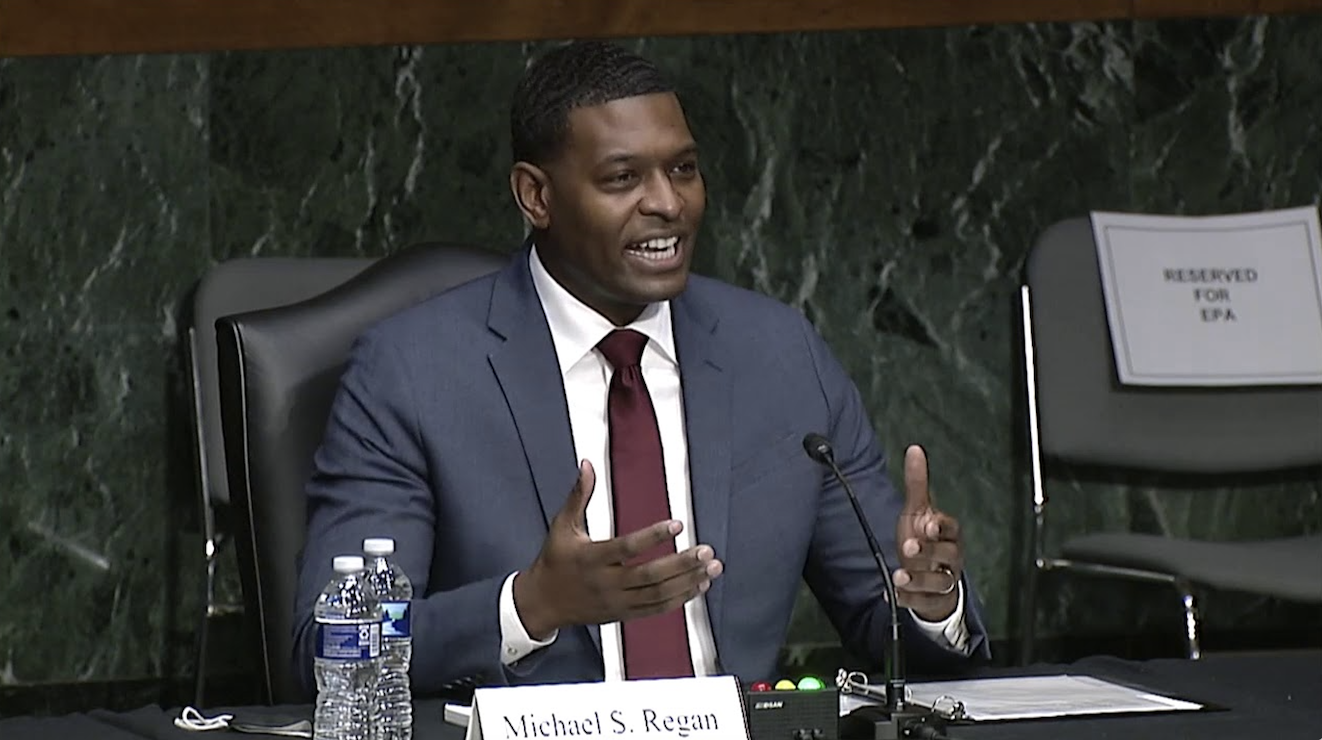Biden’s EPA nominee must act on forests to be an environmental justice champion

Michael Regan’s support of the wood pellet industry has devastated the health of rural low-income communities of color.
By Scot Quaranda / Independent Media Institute


The confirmation process for President Joe Biden’s nominee to head the Environmental Protection Agency (EPA), Secretary of the North Carolina Department of Environmental Quality (NC DEQ) Michael Regan, has begun. While many environmental groups have enthusiastically supported his appointment, his leadership on environmental justice in his home state has produced mixed results.
Regan has headed the NC DEQ since 2017. On the bright side, Regan played a lead role in the development of the state’s Clean Energy Planpursuant to Gov. Roy Cooper’s executive order on climate change. This work led to the state rejecting biomass energy as a false solution to climate change.
The plan states, “Currently, the wood pellet industry does not contribute to NC’s energy generation portfolio and does not advance NC’s clean energy economy. The wood pellets harvested from NC increase the state’s carbon output during logging, processing and transportation and are burned for fuel elsewhere, mostly Europe.”
Regan also created the Environmental Justice and Equity Board. In Regan’s own words, “[T]ogether we will protect our natural resources, our economic interests, and our communities so that ALL North Carolinians will have clean air and clean water for today, tomorrow and future generations to come.”
Unfortunately, these statements were not backed by sufficient agency action. Despite the strong local community and statewide opposition, as well as his own message relating to the Environmental Justice and Equity Board, wood pellet biomass facilities that were proposed during his tenure were fully permitted or allowed to expand production. These decisions have created irreversible climate, forest and human health impacts, all of which disproportionately affect low-income rural communities of color.
If he truly cared about frontline (or as he calls them, fence line) communities, he would have addressed the wood pellet industry and logging in North Carolina. Had Regan’s actions as the top environmental regulator in North Carolina matched his words, there would have been a more favorable outcome for the communities and forests of the state, where my organization, Dogwood Alliance, is based. Time and time again, he deferred taking bold action, noting the lack of power he had as a state regulator to effectively address these issues. Now, on the cusp of becoming the head of the EPA, that all changes.
There are four pathways that Regan should aggressively follow in order to achieve a positive environmental impact for all communities:
- Regulate biogenic carbon emissions and reject biomass as a path to reducing carbon emissions.
- Direct states to comply with their responsibility under the Civil Rights Act and consider the disproportionate impacts that issuing permits for wood pellet/biomass facilities would have on communities designated for environmental justice (defined as those communities that are most impacted by environmental harms and risks with a disproportionate exposure to environmental hazards and increased vulnerability to these hazards).
- Improve the EPA’s annual greenhouse gas reporting by disclosing forest carbon emissions from forestry in accordance with the latest science and methodology.
- Strengthen Clean Water Act regulations, which contain massive loopholes for industrial forestry.
Under Regan’s leadership, the wood pellet industry has rapidly expandedin North Carolina, and the state is now the largest exporter of wood pellets in the world. Nearly 80,000 acres of forest had to be cut down in 2017 to meet the needs of pellet processing plants in North Carolina, according to an estimate by Dogwood Alliance. The forest products industry, including wood pellet production, is the third-largest carbon emitter in North Carolina, barely behind electricity and transportation. And every single wood pellet facility built in the state was sited in environmental justice-designated communities, increasing air pollution risks to local residents.
The U.S. is the world’s largest wood-producing and consuming nation, with rural low-income communities of color in the Black Belt region of the coastal plain of the U.S. South disproportionately bearing the negative impacts of this. The rate of forest cover loss from “forest management” (aka industrial logging) in this region was estimated to be “four times as high as that of South American rainforests” between 2012 and 2013, according to a paper by the United Nations Open Working Group on Sustainable Development Goals. This same region consistently exhibits high poverty, unemployment and other indicators of socioeconomic distress.
Unregulated “forest management” via large-scale clear-cutting and the conversion of natural forests into plantations have left forests and surrounding communities in a degraded state. According to a paper submitted to the World Forestry Congress, as of 2003, 67 percent of the nation’s industrial tree plantations can be found in the South, with the highest concentrations in the coastal plain and Black Belt region. The loss of tens of millions of acres of natural forest cover to “replanted” or “regenerated” plantations planted with seedlings that have been genetically manipulated to grow faster for commercial extraction has been well-documented.
Over decades, the loss of natural forests to pine plantations has brought some of the South’s most diverse ecosystems to the brink of collapse. Plantations are essentially dead zones in terms of carbon sinks and biodiversity, releasing carbon for up to 13 years after harvest. The establishment of plantations has degraded forests’ ability to filter water, purify and cool the air and provide natural flood control. In the coastal plain Black Belt region, approximately 28 percent (or more than 1 in every 4 acres) of “forests” are industrial tree plantations, compared to 8 percent nationally.
These same communities are in high-risk flood zones, having suffered disproportionate impacts from the recent extreme flooding linked to climate change. Only approximately 10 percent of the forestland in the region is in public ownership, compared to 33 percent nationwide. Of the 90 percent in private ownership, less than 1 percent is owned by people of color. The lack of public ownership combined with the extent of industrial forestry disproportionately restricts access to outdoor recreation and its associated community and economic development benefits.
So now, as Secretary Regan undergoes the confirmation process, we must remind him that actions speak louder than words. If he is confirmed, let’s hope he will take action and stand up to industrial polluters that continue destroying our forests and polluting our communities.
This article first appeared on Truthout and was produced in partnership with Earth | Food | Life, a project of the Independent Media Institute.
Scot Quaranda is the communications director at Dogwood Alliance.





